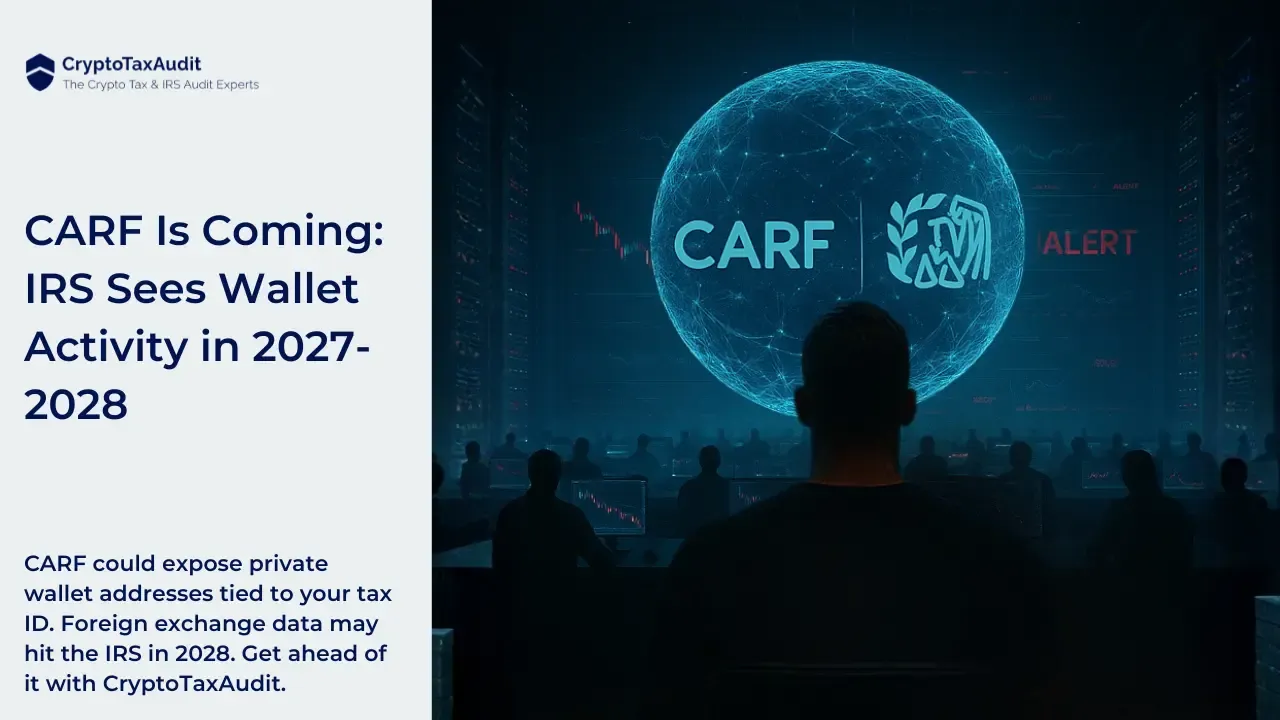
6 Crypto Tax Proposals You Need to Know 2025 (Senator Lummis Drops Digital Asset Tax Fairness Act)
Key Takeaways
- Staking and mining rewards would only be taxed only upon sale, not when earned.
- Charitable crypto donations could skip costly appraisals for actively traded coins.
- Active trader status may now apply to crypto under mark-to-market rules.
- Crypto lending clarified as non-taxable, just like traditional asset lending.
- But… Wash sale rules may be extended to crypto, eliminating key tax strategies.
- De minimis exemptions look helpful but still require full tracking—zero time saved.
What Is the Digital Asset Tax Fairness Act and Why It Matters for Crypto?
Senator Cynthia Lummis has introduced the “Digital Asset Tax Legislation,” a new bill aimed at clarifying the messy overlap between crypto and the U.S. tax code.
It includes six proposals, and while four are long-overdue wins, two of them raise serious red flags for crypto investors.
Let’s break it down.
Which Crypto Tax Rules Would Improve Under the New Bill?
1. Staking and Mining Tax Clarity
Under current rules, crypto rewards from staking or mining are often taxed when received—at ordinary marginal tax ratess, then when you do sell them, any gain or loss is subject to lower capital gains tax. That’s been an irritation to some for years.
This bill fixes that: taxes would only apply when those rewards are actually sold. But the full amount is taxed at ordinary marginal tax rates. It’s a common-sense change that brings crypto in line with how income is realized in otherareas of tax law.
2. Charitable Donations Without Appraisals
Right now, donating crypto means getting a qualified appraisal. But this requirement is redundant and expensive for actively traded coins with transparent market pricing.
Lummis proposes removing the appraisal requirement for well-traded assets, cutting costs and red tape for donors. This is a big improvement.
3. Mark-to-Market Option for Active Traders
Crypto traders have long asked to be treated like securities traders when it comes to high-frequency trading. This bill extends the mark-to-market election to crypto, making it easier for pros to simplify their accounting and avoid nasty surprises at tax time.
4. Crypto Lending Not Taxable
Is lending your crypto a taxable event? Finally, this bill says no.
Just like lending out stocks or bonds, crypto lending under this legislation would not trigger a taxable event, clearing up confusion and helping DeFi participants sleep better.
What Crypto Investors Should Worry About in the Lummis Tax Proposal
1. Wash Sale Rules for Crypto
This is the most controversial piece of the bill—and the most damaging.
Lummis proposes extending the IRS wash sale rule to cryptocurrencies. That means if you sell a coin at a loss and buy it back within 30 days, you lose the ability to claim that loss on your taxes.
It kills tax loss harvesting—one of the most effective strategies crypto investors use to lower their tax bill in a volatile market.
Worse yet, the wash sale rule is easy to game with traditional stocks—experienced traders already bypass it by trading across multiple accounts or platforms.
In crypto, that kind of rule punishes small investors who don’t know the workarounds.
Call it what it is: a “stupid tax” that hurts the people least able to defend themselves.
The wash sale rule neither strengthens nor protects the economy. It is a mean tax that should be repealed even for securities traders.
2. The Illusory De Minimis Exemption
At first glance, the bill offers a modest win: crypto transactions under $300 (or under $5,000 annually) wouldn’t be taxed.
But here’s the catch—you still have to track every single transaction to prove you qualify.
So the accounting burden remains, but now you get a tiny tax break that adds no real value.
It’s like getting a coupon for $1 off... if you agree to fill out a 10-page form.
What Do Crypto Traders Actually Need from U.S. Tax Law?
As crypto becomes the backbone of everything from finance to voting systems, taxing every minor token transfer makes no sense. The future demands:
- Broader asset class exemptions from capital gains tax
- A long-term capital gains rate on all crypto transactions, regardless of holding period
- A complete rethink of how decentralized, digital economies interact with tax law
This bill takes some important steps, but it also takes some steps backward. In a world racing toward tokenized everything, the U.S. can’t afford to get this wrong.
Is This Crypto Tax Reform Good Enough — Or Just More Red Tape?
Tax law should make compliance easier, not harder. Senator Lummis deserves credit for trying, but crypto investors need smarter rules, not recycled headaches.
If you're trading, staking, or donating crypto, you need more than just tax prep—you need defense.
At CryptoTaxAudit, we don’t just file. We protect.
The IRS isn’t waiting — and neither should you. If you’ve got crypto gains, now is the time to get serious. Our tax prep waiting list gives you first access to real experts who can keep you compliant, reduce your risk, and fight back if the IRS comes knocking.
Crypto Tax FAQ: Answers About Staking, Lending, Wash Sales, and More
Q: What is the wash sale rule for crypto?
A: If this bill passes, selling a coin for a loss and rebuying it within 30 days could disqualify your tax deduction for the loss. It would end tax loss harvesting strategies that many traders rely on.
Q: Will staking rewards still be taxed right away?
A: Not under this bill. You’d only pay tax when you sell or dispose of staking or mining rewards, not when you first receive them.
Q: Do I still need to track small crypto purchases under $300?
A: Yes. Even though gains on small transactions could be exempt, you must keep records to prove it, meaning the same tracking burden stays in place.
Q: Is crypto lending taxable?
A: This bill clarifies that lending crypto is not a taxable event, aligning it with traditional asset lending rules.
Q: Can I donate crypto without an appraisal now?
A: If the bill passes, yes—at least for actively traded coins. You won’t need a costly third-party appraisal to donate crypto to charity.
Related Articles: FIFO, LIFO, HIFO Explained – Optimizing Your Crypto Taxes





